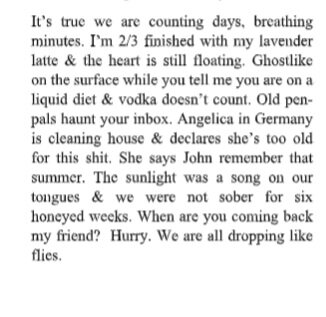The Notebooking Daily 2020 Writing Series is a daily writing exercises for both prose writers and poets to keep your creative mind stretched and ready to go—fresh for your other writing endeavors. The writing prompts take the impetus—that initial crystal of creation—out of your hands (for the most part) and changes your writing creation into creative problem solving. Instead of being preoccupied with the question "What do I write" you are instead pondering "How do I make this work?" And in the process you are producing new writing.
These exercises are not meant to be a standard writing session. They are meant to be productive and to keep your brain thinking about using language to solve simple or complex problems. The worst thing you can do is sit there inactive. It's like taking a 5 minute breather in the middle of a spin class—the point is to push, to produce something, however imperfect. If you don't overthink them, you will be able to complete all of the exercises in under 30 minutes.
Erasing Roger Ebert 4 "Max Dugan Returns"
For poetry do an erasure or black-out poem from the following: Roger Ebert's review of the 1983 film "Max Dugan Returns".
Roger Ebert has been the stereotypical film critic for decades, and he's written thousands of reviews. Because of their nature, almost their own bit of ekphrastic art, this series of erasures will be lots of fun!
An Erasure/Blackout is really simple: you take the given text and remove many words to make it your own new piece. One way to go about the erasure that I like to do is to copy the text and paste it twice into your document before you start erasing or blacking out (in MS Word set the text background color to black), that way if you get further into the erasure and decide you want a somewhat different tone or direction, it's easy to go to the unaltered version and make the erasure/black-out piece smoother. Another tip is to look for recurring words, in this example 'bingo' occurs multiple times and could be a good touchstone for your piece.
If you insist on fiction, write a piece with one of these six titles taken from this section:
- Shallow Wholesomeness
- a world where the family gets together for a cute-talk confab in the breakfast nook
- A World Inhabited Largely by Movie Stars, Drug Dealers and Transvestite Roller Skaters
- With a Lot of Pluck
- To Even an Old Score
- Sort of Sweet
Erasure Selection:
Roger Ebert's review of "Max Dugan Returns"
"Max Dugan Returns" is a sweet little movie that evokes, in its shallow wholesomeness, a world that has pretty well disappeared from TV and the movies. I'm thinking of that lost American paradise inhabited by Blondie and Dagwood, Ozzie and Harriet and the Beaver -- a world where the family gets together for a cute-talk confab in the breakfast nook.
The movie takes place in the Venice Beach area south of Santa Monica. That's a world inhabited largely by movie stars, drug dealers and transvestite roller skaters, but you wouldn't know that from "Max Dugan Returns." The movie stars Marsha Mason as a widowed schoolteacher who's raising her teenage son (Matthew Broderick) with a lot of pluck and cheerfulness.
This is one of those movies that starts right out with little character touches; Mason is provided with a standard-issue Colorful Hollywood Car that bounces like a bronco and backfires on cue.
Then two big things happen in her life. (1) Her car is stolen, and police Lt. Donald Sutherland is assigned to the case. (2) After 30 years, her long-lost father (Jason Robards) returns, bearing a briefcase full of money. While Sutherland and Mason slowly fall in love, Robards moves in and explains that he swindled the money from a Las Vegas casino to even an old score, but now he has only six months to live and wants to get to know his daughter and grandson.
This is, as you will have noticed, a Plot. There is never a danger that we will confuse it with Real Life. It's unfair even to ask for realism; "Max Dugan Returns" isn't supposed to be a slice of life, it's supposed to be a series of situations leading to a semi-tearful happy ending. The movie was written and co-produced by Neil Simon, who is certainly facile.
He can create colorful characters on a moment's notice, and spin out funny dialogue by the yard. His problem is making the characters seem somewhat three-dimensional. He defines them by their jobs, ethnic categories, costumes and speech patterns, so we can tell them apart -- but how many Simon characters can you really remember through the years? "The Odd Couple," Dreyfuss and Mason in "The Goodbye Girl," Mason in "Chapter Two," Ann-Margret in "I Ought to Be in Pictures," Michael Caine in "California Suite," and who else?
Simon's gift also is his downfall. He's so good at writing lightweight dialogue that it all begins to sound the same. In "Max Dugan Returns," for example, there's a running gag about whether the dog is named Plato or Pluto, and the trouble is, the first time the names are confused, we know with a conviction approaching certainty that they will be confused again, and again.
"Max Dugan Returns" is watchable and sort of sweet. Robards gives a poignant performance as the dying father, although the movie makes him express his love through expensive gifts that are sort of off-putting. When the movie is over, however, it seems to evaporate. It doesn't have a purpose for being; it's just spun sugar and a few tears, a plot situation set into motion to create the illusion of suspense before everyone gets what he wants, or fears, or deserves. There's hardly a moment in the whole movie that would be confused with daily life as it is really lived. Maybe that's the idea.
------------------------------------
If you'd like some background music to write to, try this ambient "The Ocean inside of you" lofi mix.


















